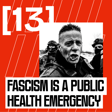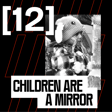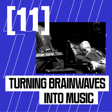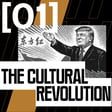Become a Creator today!Start creating today - Share your story with the world!
Start for free
00:00:00
00:00:01

02 - A Community of Support | Rev. Michael Thompson
“The world is so empty if one thinks only of mountains, rivers & cities; but to know someone who thinks & feels with us, & who, though distant, is close to us in spirit, this makes the earth for us an inhabited garden.” ― Goethe
In the first interview of the Fifth Column podcast, Gerry shares a conversation with Rev. Michael Thompson, an ordained priest, lawyer, activist, and dear friend, about the importance of community in increasingly hostile times, the true biblical message, and taking a stand against the New American Barbarism.
//
JOIN THE COMMUNITY
SUBSTACK - NEVER MISS NEW RELEASES - SIGN UP TO OUR MAILING LIST
INSTAGRAM // FACEBOOK // THREADS
STAY SAFE
//
Transcript
Introduction to Michael Thompson's Unique Perspectives
00:00:07
Speaker
So we are in Melrose, Massachusetts with my friend Michael Thompson to talk about the time and the circumstances of our country and what to think and do about it.
00:00:21
Speaker
Michael, very interestingly, is a Harvard-trained attorney and also an ordained Episcopal priest at a diocese in Greater Boston.
Confronting Fascism: Experiences and Reflections
00:00:33
Speaker
It's a very interesting recipe, and I think gives you some both structure and insight into your calling ah for your parishioners and for how to be a person, I think, in this difficult time. You can say that again.
00:00:55
Speaker
yeah so uh one of the things i think i admire the most about you is your ah personal courage in confronting fascist masked aryan officers at protests on behalf of vulnerable parishioners Would you like to talk a little bit about, first of all, that circumstance and also your feelings about it in your role? And also, if you wanted to be vulnerable about yourself and like, how do you face them down? ah I'd be interested.
Immigrant Struggles and Community Support
00:01:35
Speaker
So we, I got an email that was a call to action on behalf of a parishioner in a parish other than mine. And the request was simple. They had a, they were called into a hearing with ICE in Burlington.
00:01:51
Speaker
and had had entered the United States really as a refugee, is what I would say. She was escaping really horrific circumstances in her home country. From Haiti, right? From Honduras. Honduras, okay.
00:02:10
Speaker
and she made it to the United States with a significant set of disabilities and in being here for well over a decade she helped other immigrants become acclimated to life in the United States she she went all in on a life in this country And um she got hauled into a hearing. And the thought was that she would be detained and deported that day.
00:02:46
Speaker
So the goal was to get people of faith, including clergy, clergy who were visibly clergy, who are wearing clergy collars and wearing stoles, to show up, not even to protest or make any particular statement about ICE or immigration policy, but first and foremost to to pray with her, to support her, to provide pastoral care for her,
00:03:13
Speaker
And this sort of the the protest piece of it was a natural offshoot of that. And I the the energy, i think the final count we heard was that there were about two or three hundred people there.
00:03:29
Speaker
And the energy of that moment was both geared toward protest and calling out immigration policies that are just plain wrong and do not comport with the gospel, and just beautiful love in surrounding her as she was going into a proverbial lion's den.
Gospel Advocacy and Personal Risks
00:03:54
Speaker
And so the gospel the gospel is important there because that provides um a guide for everyone involved. Like, that's your reason for being there. It's on behalf of people being treated unjustly and who are vulnerable.
00:04:08
Speaker
And that's part of the calling that we all have, which is to... Faced with injustice, you know, you you cannot be silent. i mean, otherwise you're complicit.
00:04:19
Speaker
Absolutely. And it came at a personal risk to you because it's a trigger, right? Oh, yeah. um So this was before the reports of incidents of ICE shooting clergy with you pepper pepper spray and other things. In Chicago, there was a sort of quite an obvious attack on ordained clergymen in Chicago. Yes, and there have been several others since then. And we can actually even go go farther back to Trump's first term,
00:04:52
Speaker
where there's an Episcopal Church across the street from the White House, St. John's Episcopal Church, and the clergy of that church were attacked on the porch of the church that they serve.
00:05:04
Speaker
But this action happened before the the attacks in Chicago. And there was on some level a feeling that the clergy collar might provide some sort of cover.
The Nature of Protest and Law Enforcement
00:05:23
Speaker
But the the reality was personally, i was a person of color in a place where the only reason there needs to be to detain you is to be a brown person.
00:05:37
Speaker
um I was also in a group of people who were, could be perceived as agitators. It was entirely peaceful when we were asked to move, you know, onto the the grass area. We did it. We complied with everything. And even so, if you're looking for an excuse for violence, for some sort of conflict, it's easy to contrive one.
00:06:04
Speaker
um And there there were police outside the ICE facility. um There was a strange incident where a couple of, there there were some two police cars that sort of came up and there was a little congregation of a couple of police officers.
00:06:23
Speaker
And yeah, I was looking at that. wondering what's what are they doing, what's happening. um I was looking at that from a safety perspective of myself and the people around us and you know just being aware, situationally aware, what was happening around me.
00:06:42
Speaker
And i'm I'm also a lawyer and i was looking at it from that perspective of we are engaged in activity that is lawful activity, is constitutionally protected activity.
00:06:54
Speaker
We should be allowed to do it. And this was not only a right to gather, but this was this was an exercise of our religion. This was an exercise of our understanding of the gospel.
00:07:06
Speaker
And that the gospel is supposed to be good news to the poor, to the oppressed, to the marginalized. And ultimately to bring about justice.
00:07:18
Speaker
I think it's interesting that in the city of Chicago, um city police officers have been attacked and tear gassed by ICE and also have stood up for citizens of Chicago to sort of say, no no, no, wait a minute. This is a peaceful protest. What are you doing? Why are you tear gassing children at Halloween going trick or treating for one thing?
00:07:39
Speaker
And also, you know, Governor Pritzker has said, we will go after you. Like, if you're a federal, if you're a lawless federal agent here, harassing, terrorizing citizens in Chicago, we will find you and prosecute you, which I think is actually really encouraging. And they absolutely should. And you don't get to, being a federal officer does not give you license to commit crimes.
00:08:04
Speaker
and And yet, right, we see this lawless administration carrying forward this lawlessness into every aspect of government, including police National Guard enforcement. It's a kind of a crazy topsy-turvy world in which any form of opposition, political or verbal or anything, is regarded as
Civil Liberties and Mischaracterization of Opposition
00:08:28
Speaker
terrorism, right? So, like, the Democrats are now somehow terrorists. Like...
00:08:34
Speaker
It's insane. Like you look at this, you're like, what, wait, what? Trans people were so were transformed into terrorists and organizations that support trans people. And, you know, that was done in a a vaguely stated way so that, yeah, they could just designate anyone. You're a terrorist.
00:08:59
Speaker
I've wondered, you know, the the Episcopal Church's position is that we do not discriminate on the basis of gender identity, sexual orientation, race, gender, any of those things. So are we going to be branded a terrorist organization at some point?
00:09:15
Speaker
Yeah.
00:09:17
Speaker
well you know europeans looking at this go wait a minute uh if we don't like a policy like say i'm in france we just like block the roads and stop the railroads like and that's like accepted forms of protest the the french government goes okay they don't like it we better think about this but the french government doesn't go shooting protesters in france just because they've blocked a highway Right. And yet that seems very typical as a response in America, like going back to Kent State, like, let's just shoot the students and show them who's the boss. Yeah. right
00:09:50
Speaker
Well, first we brand them rioters and agitators. They're not protesters. And that that has to that's the way where a lack of the rule of law is gussied up as some sort of lipstick on a pig version of the rule of law.
00:10:10
Speaker
Yeah. I mean, what do you make of all of that? What do you make of all of these constitutional violations in a country that prides itself, right, on ah on a Bill of Rights, you know, on ah a really inviolable rights that were hard won, and yet every one of them is being knocked down every day with with impunity? There's no accountability at all, but no guardrails.
Christianity, Justice, and Anti-Immigrant Actions
00:10:37
Speaker
do you What do you make of that So I look at this from from both perspectives. I'm not i've never not a lawyer and I'm never not a priest. I'm both things at all times.
00:10:48
Speaker
From a lawyer's perspective, to be sworn in and to be accorded the privileges of being an attorney, I had to swear to protect and defend the Constitution of the United States and Massachusetts.
00:11:04
Speaker
And I meant it. i was familiar with the US Constitution, of course, from law school. I went and I read the Massachusetts Constitution because I wanted to know what I was swearing to protect and defend.
00:11:19
Speaker
And as officers of the court, we are supposed to be beholden to principles of equal justice, the old school traditional justice with the scales, and she is blindfolded.
00:11:39
Speaker
There is a reason for that. Justice is not supposed to be, well, this is what I want to do. So let's just find a justification and call it justice. Justice is supposed to be about equal application of the law to all people, regardless of whatever characteristics they have.
00:12:01
Speaker
And what we're seeing now is basically looking for excuses to do whatever one person wants to do that would be a dictatorship yeah from the perspective of a priest it is profoundly grieving to hear people who say they are Christians, who wear crosses, who talk about the need to practice their religion openly, who claim to be oppressed in the practice of their religion, do just about everything that is entirely contrary to what the gospel says.
00:12:52
Speaker
I mean, the these are folks, the the supporters of these folks have been asked actually in a lot of different ways, would you let Jesus into the country?
00:13:03
Speaker
And the answer generally is no. That's wild to me. That these are folks who would claim to follow a man, that's what a Christian is, they're followers of Jesus Christ.
00:13:21
Speaker
And wouldn't, and would have him deported. What does that say?
00:13:27
Speaker
I think it's really interesting that you're both sworn to uphold the Massachusetts Constitution as a lawyer, but also ordained as an Episcopal minister.
Aligning Law and Faith in Advocacy
00:13:38
Speaker
And you experience no contradiction between these two parts of yourself, two parts of your personal professional identity, because in some ways they align. In fact, they reinforce, which is really interesting.
00:13:51
Speaker
Not everybody would see that, right? Yeah, and in the Episcopal Church, um for for Christianity broadly, baptism's kind of the the initiation into the community, and we have a baptismal covenant, and part of that covenant is that we are going to strive for justice and peace among all people.
00:14:09
Speaker
And justice, i maybe it's naive, but one of the reasons I became a lawyer is an actual belief in justice, in...
00:14:21
Speaker
trying to get to some understanding of the truth and applying the law to it in a way that is not perfectly fair, but endeavors to be perfectly fair. And we, we, we miss the mark a lot of the time, but really the point is the trying to be fair.
00:14:47
Speaker
We're in a phase where people don't even pretend to try. And I think maybe what you and i both find discouraging is self-professed Christians so at odds and hypocritical with core beliefs of Christianity. And likewise, attorneys who have sworn to uphold the constitutions of their states or who are admitted to the bar in their states equally corrupt and in the service of power and injustice in a way that's clearly against their
00:15:22
Speaker
professional ethics, right? Absolutely. the ill I'll take the lawyer lawyer piece first. Sure, as lawyers, we're trained to argue all sides of just about any issue. But there there are principles of when something's clear and unambiguous, it means what it says.
00:15:44
Speaker
So things like this this argument over naturalized citizens and whether people born in the United States are citizens and maybe there's some weird loophole. There's no loophole. The the amendment says what it says.
00:16:00
Speaker
um that's sort of similar for the Gospel. um we Sure, we should wrestle with the our understanding of Scripture, we should wonder about what the context was and what was meant, but they' are also there's there's also aspect of we these These Gospels record Jesus saying things, and a lot of them, they mean what what they say. Welcome the stranger. Feed the hungry. Clothe the naked. Visit the prisoner.
00:16:38
Speaker
Strive for justice. Take care of the widow and the orphan. The folks love to scour the Bible for a handful of words that support their position, but manage to completely ignore straightforward love one another.
00:17:00
Speaker
That's frustrating.
Race, Citizenship, and Nationalist Agendas
00:17:04
Speaker
Well, and I think this attack on birthright citizenship is also calculated because the 14th Amendment, which guarantees it, also talks about equal protection under the law and the importance of people being treated fairly. And it grows out of the Civil War. And the reason for that attack is also race-based.
00:17:24
Speaker
Absolutely. It's about race. It's about... wanting to establish a white Christian nationalist fascist state and you got her shut up the brown people right and the yellow people yeah and the non-Christians first and tell them to accept what's coming in order for you to establish this fascist utopia you have in mind and the 14th amendment stands in the way of that absolutely and if you just take a step back It's all of that is just patently ridiculous. Like, why would you be opposed to equal protection under the law?
00:18:03
Speaker
Why would you be opposed for an equal application of the law to all people? This is the same thing with the attack on DE&I. And I like saying the words, how are you opposed to diversity?
00:18:18
Speaker
How are you opposed to equity? How are you opposed to inclusion? Saying those things, one would hope, would be immediate.
00:18:30
Speaker
No, I'm in favor of all of those things. You should get an immediate reaction. There shouldn't be a debate. Even down to the fact that there seems to be now some sort of debate over whether Nazis are good or bad. I thought we had settled that one quite some time ago.
00:18:47
Speaker
Yeah, I mean, you know, you would question 14th Amendment if you were a white supremacist, right? I mean, if your point is to, like, let's bring let's make America great again to the great that it was, I guess, when? I don't know, 1950 what, How far back do we have to go? I mean...
Historical Contexts of Oppression
00:19:06
Speaker
Right. The whole point is like, let's reestablish, you know, white Christian landowners as the only people who can vote. This whole idea of taking away women's right to vote because the husband of any family should be the one who gets to say at the polls what the family believes. Right. It's part of this belief. Like, it's insane.
00:19:26
Speaker
when When you say white Christian landowners, I think that's really important because a lot of the people who are supporting these actions don't realize they wouldn't have the right to vote either.
00:19:44
Speaker
they're actively working against their own interest. And the there are a lot of different perspectives on on the book of Revelation and you know what what the Antichrist means, but taking out the the sort of the fireworks of it all, the idea of a person who can get lots of other people to follow them, even when they say things that are illogical, that are fun to just feel fundamentally wrong. That's, that's something that's happened multiple times over human history. And we seem to be doing it again and haven't, haven't learned the lesson.
00:20:31
Speaker
and why And why is that? Is it that humans are fundamentally broken and perverse and you know enslaved by their ah cruelty and ah sadism? Is it that ah you know somehow permission has been given for sadism and gleeful the gleeful cruelty?
00:20:54
Speaker
of zip tying a three year old girl on the sidewalk in her nightie. That nearly broke me. I mean, that was in Chicago like a month ago. Absolutely. So the gleeful sadism of it all is is is that suddenly were we're in a time where that now has, it's there's permission, right? Yes, and the the permission is gussied up, again, as this rule of law and this is Christianity, which is use the label and call it that and that's what it is.
00:21:29
Speaker
But that betrays a fundamental lack of understanding about the the foundation of Christianity, what Jesus was about, how Jesus lived, what Jesus did, what Jesus taught.
00:21:44
Speaker
You don't have to be a Christian. I mean, if Jesus were just entirely human, he was a pretty good guy who had some great things to say. And what were those things? It was take care of each other.
00:21:58
Speaker
How is that controversial? There should be nothing controversial about that. It only becomes controversial when you are in a position of privilege, when you are the on the side of the oppressor,
00:22:12
Speaker
then the oppressed having equality is a threat to you. But basically from Genesis through Revelation, the Bible keeps coming back to God wants to free people. God is about freedom from bondage. God is about siding for siding with the oppressed, with the marginalized, take care of the widow and the orphan.
00:22:37
Speaker
That God... who we say is all powerful, uses all of that power on the side of those who don't have it.
00:22:51
Speaker
It's a scary time and it's uniquely triggering for me because my dad survived ah Stalin in the 30s, the terror in the 30s in the Soviet Union as my grandfather was a kulak and thrown off their land.
00:23:09
Speaker
And it's amazing that he survived even that when millions died in Ukraine in the starvation. and Purges and then the war came and they ended up behind German lines and then he was terrorized by the Nazis They were in a forced labor camp and he ended up in Italy in a displaced persons camp for stateless people and only by a lucky accident emigrated to Halifax after the war but he brought it all with him in his luggage and he had PTSD for the rest of his life and that's how I grew up
00:23:47
Speaker
And so I know this music. I know the music of fascism. I know the sound. i can feel the bang, bang, bang on the door of Judenraus, right? like And then straight to the concentration camp with you. I know that feeling. My dad never relaxed. He spent the rest of his life looking over his shoulder.
00:24:09
Speaker
He was certain the KGB would find him and put a bullet in his brain. Mm-hmm. And I know that sour taste of fear. And this is all triggering for me because I can feel it happening again. yeah And it's taking all my self-control not to grab my passport and free cash and get out of here. Oh, I hear you.
00:24:30
Speaker
um The i When really it since January. When I fly, i wear my clergy collar.
00:24:42
Speaker
Even if I'm not going on any trip that has anything to do with the church, that, and I guess at least before um the incidents in Chicago, afforded me some measure of safety. But otherwise, I'm a black man who grew up in a poor neighborhood in New York City My mother's family were going back generations. They were brought here and enslaved, were freed, and that freedom was it still wasn't quite freedom.
00:25:22
Speaker
Then there were, you know, we we have the Jim Crow era, which is essentially slavery part two.
Nazi Inspiration and American Racial Oppression
00:25:30
Speaker
i read something today, I don't know the veracity of this, but I thought it was interesting that The Nazis, when they were designing the program, were looking at Jim Crow in America as an example.
00:25:49
Speaker
That should be chilling to people. That in this country that was built on freedom, that we profess to be a Christian nation. That's not a view that I subscribe to, but that's what people say.
00:26:06
Speaker
that the Nazis, in contemplating how to systematically arrest, take all the property from, and ultimately exterminate, a group of people in a genocide looked to the United States in something that we were doing, as an example.
00:26:29
Speaker
That should horrify people. Yeah, I think they were inspired by Anderson Bell, right? The concentration camp during the Civil War, where people died of typhus and starvation, right? They were like, goody, let's try that, right? Yeah.
00:26:45
Speaker
Yeah, I mean, the American model was ben it inspired the Nazis. And none of that bears any relation to anything Jesus said or did. Yeah.
00:26:57
Speaker
It's not Christian. I mean, you know, American ideas about eugenics were popular before the Nazis came into, right? Came into that. And it didn't end with that either. Like the Mississippi appendectomy, right? yeah Like the idea that like, let's take this Latina woman and like take out her ovaries without her consent. Like this is like within living memory.
00:27:18
Speaker
And here we are in 2025 reviving.
Racist Ideologies vs. Christian Beliefs
00:27:22
Speaker
some of that same thinking that people of color are somehow innately inferior.
00:27:30
Speaker
and at the same time professing a belief in a God who created all things and who who doesn't mess up.
00:27:42
Speaker
So how do those two things how do those two things exist side by side? There's something fundamentally wrong from a biological sense.
00:27:54
Speaker
for ah with people of color, and yet God created all people and all things and created them good and didn't make any mistakes. It's another it's another irreconcilable conflict. doesn't make sense. Yeah.
00:28:09
Speaker
Well, and the deliberate firing of um black senior members of the Pentagon. Yeah. The Joint Chiefs of Staff. Yeah. Senior black members of ah the military. um The deletion of ah Pentagon websites of ah ah black Americans who contributed to important innovations, right? In technology or it's just it's deliberate and it's targeted and it's it's impossible to ignore.
00:28:34
Speaker
ah It's also the actions of small people. that Those things shouldn't be threatening. what What does it matter? Like that there shouldn't be any threat from a person who made a contribution to the military and they happen to be black.
00:28:56
Speaker
That's a threat when you are a small and scared person. Yeah. And maybe that's the best weapon we have at this point is the courage of ordinary people to say, that is wrong.
Courage and Community in Activism
00:29:15
Speaker
No, you cannot take that brown woman and and stuff her into a black van and disappear her. Yeah. Like that's, it's the courage of ordinary people to say, stop it.
00:29:27
Speaker
Right? No. Well, and that's that that's what we're seeing both in people who are white, who have privilege, who are using that privilege to stand, literally, stand in front of people of color and prevent their detention.
00:29:46
Speaker
You see that in people chasing ICE agents and and vans out of neighborhoods down to the restaurants not welcoming ICE agents into their establishments. And those, they they can sometimes feel almost too small.
00:30:07
Speaker
But those actions, that's what changes people. That's what changes the world. It's step by step and you can you can pick a perspective, whether it's from the legal perspective of we've got to you know build legal precedent on legal precedent and we develop over time and come to understandings about how to enact equal protection.
00:30:34
Speaker
And you can look at it from a religious perspective of these are people who are truly living the gospel, that they are going to use the resources that they have on behalf of people who don't have those resources. And the fact that there are people who...
00:30:55
Speaker
will do that, that there are more people who are doing that, that revives the the ultimate sense of hope that yes, it really does matter.
00:31:08
Speaker
And that love is more powerful than hate. And every small act of love down to the smallest has a cumulative effect and it echoes and shifts things toward love.
00:31:23
Speaker
Did you witness behaviors like that at the protest in Burlington? like like Like white people putting themselves ah on the front line, right? there It wasn't necessary in in the physical sense because um there wasn't really a confrontation. But one thing that did strike me, one of the pastors there who was a speaker,
00:31:49
Speaker
was an immigrant from Ireland, a white guy. And he said um ah about the the parishioner who had the ICE hearing, he said, immigrants like us.
00:32:06
Speaker
That was powerful. Very simple and absolutely true. But people would would not think, oh, he's an Irish. He's from you know a European country. He's okay.
00:32:22
Speaker
But he chose to identify with someone who didn't have that privilege. Well, anybody who's actually Irish knows in their DNA what injustice looks like. Absolutely.
00:32:37
Speaker
I mean... Including the history of this country, which some seem to have forgotten. Yeah. Yeah.
00:32:45
Speaker
Yeah, I'm ah i'm encouraged,
Empathy and Moral Conviction Against Injustice
00:32:48
Speaker
too. I say sometimes that in some attic somewhere in Los Angeles, um a little girl named Maria Ramirez is starting a diary. Hmm.
00:33:01
Speaker
And I guess that's it. It's an ordinary Amsterdam Protestant woman like Miep Gies risks her life to bring groceries to Anne Frank's family because it's simply the right thing to do.
00:33:14
Speaker
And ah she had this sort of unassailable sense that... No, the family will not go hungry because I won't let it happen. ah And i think there are a lot of people like that who really do feel that gospel in their bones and will not go along quietly watching horrible things happen to innocent people.
00:33:42
Speaker
And that takes a It's almost hard to overstate the level of conviction that takes. I think of someone like Dietrich Bonhoeffer, it quite literally in the thick of the horrific fascist regime, Nazi Germany, that wasn't an easy time to stand up for what was right, but he did it anyway. I think of someone like, uh, Jonathan Daniels, who
00:34:13
Speaker
was so so moved by the call to justice for black people living in the south that he went down there and he did literally put himself in between the gun of a white man and a black girl
00:34:35
Speaker
Well, and I think about John Lewis, um yeah who heard the news of Emmett Till's murder, and they were the same age, and said, wait a minute, that could have been me. yep And that launched his political career. he was It's all about, that could have been me. And I think that's it, isn't it?
00:34:56
Speaker
That could have been me is, in fact, the gospel reason to do anything to oppose injustice because that could have been me is this is the point.
00:35:10
Speaker
Absolutely. it's not There's no us and them. There's just us. And the the gospel lesson is that we are all one body. Paul talks about one body and many members. And the members are diverse. The members of a human body are diverse. They do different things. They look different from each other and they all serve one purpose that then combined gives life to a complete body.
00:35:36
Speaker
The mentality really undergirding all of this is they are not like us. That is wholly incompatible with the teachings of the gospel.
00:35:51
Speaker
Well, that's why I come back to that coverage in Chicago of that ICE raid on the the the housing development, where they these agents rappelled down from helicopters as though it was sort of cosplaying Somalia or something.
Dehumanization and Mistreatment of Immigrants
00:36:07
Speaker
and with flash bangs and so on dragged families naked from their beds screaming and terrified and then so there was that very difficult ah news image for me of the masked ICE agent zip tying the three-year-old girl on the sidewalk And so the focus is on the girl, but I want to know about the guy, this ICE agent. I want to ask him, are you a dad?
00:36:36
Speaker
Do you have children in your life? What allowed you to do this to a little girl? Where where is your soul? i want to talk to him now. Like, are you sleeping at night?
00:36:48
Speaker
Where is your conscience? did you Did you do that to her because you regarded her as subhuman? how did you get How did you allow yourself to do that to a three-year-old girl in her 90?
00:37:03
Speaker
I want to know about you. Who are you? It doesn't take deep analysis to know that that's wrong. I agree, but what let him do that?
00:37:15
Speaker
What excuses did he make to zip tie a three-year-old girl? yep How did he talk to himself? and How does he talk to himself now? How did he look at her and do that? Who the hell are you?
00:37:29
Speaker
on On a Sunday morning, I have the joy of seeing children, and they want to come in and play and be safe and feel seen and appreciated.
00:37:48
Speaker
and that's It's actually pretty simple. But for someone to be able to completely dehumanize a young child
00:38:05
Speaker
Because that's what you have to do in order to, you know, zip tie a three-year-old's hands. you You can't, you have to look at them as something other than human. I can't, I can't contemplate how you even go about that.
00:38:21
Speaker
This is where we're at though. And there are a lot of people like that. We seem okay with it. Yeah. In fact, all the people applauding about, you know, alligator Alcatraz, they are thrilled.
00:38:34
Speaker
Like let the children, you know, drown in the Rio Grande caught up in barbed wire and concertina wire. Like, yeah, let's let them drown. How thrilling. At the same time as professing sanctity, the sanctity of life. Right.
00:38:51
Speaker
Yeah. So what is, mean, what do we do? Well, it is incumbent on those of us who know that this is wrong, who see that it's wrong, who see the contradictions to say something, to do something, to be loud. It's not enough something.
00:39:12
Speaker
to just know that something's wrong. In this circumstance where there is a concerted effort to harm people, it's going to take more and more people saying, this is wrong, this has to stop.
00:39:28
Speaker
And we're seeing that. We're seeing that that growing more and more as as there are more and more protests. um That's important. Community is crucial. the The support that is necessary to
00:39:52
Speaker
speak truth to power in this sort of dynamic where it is very literally a physical threat, requires the support of a group of people and and it requires a group of people who can say, okay, you guys have been working hard, you need to rest, i will i'll I'll go this next mile and you can rejoin.
00:40:19
Speaker
um because this is going to take some endurance.
Hope, Resilience, and Community Support
00:40:26
Speaker
um And it's as hard as it is It's about not losing sight of hope.
00:40:38
Speaker
Because no protest, no um standing in between an ICE officer and someone else, none of that matters if you don't believe that it matters.
00:40:52
Speaker
You're doing that because there is some small kernel of hope that by doing that, things can be different. And that's what we need to hold on to. So it's the calling it out and having a deeply rooted sense that that's really going to make a difference because it really does.
00:41:14
Speaker
And that's so hard to see because so often you even big actions seem small, they seem not enough. um when you're in the thick of what feels like just despair it's hard to keep your eye on that hope but that's that's what we need because that's that's going to be the sustenance and that hope that sustenance is found in community there there's
00:41:50
Speaker
A reason that what we're told and in the New Testament about the early days of the church, people were constantly together. The word together is used a lot. They were gathered together. And what did they do together? They prayed. They supported each other.
00:42:07
Speaker
they Even when um the apostles, the the people who learned directly from Jesus, had had lost sight of the needy, there were a group of people who went to them.
00:42:19
Speaker
as As much as they were appointed by Jesus and said, hey guys, you have forgotten part of this calling. And what happened as a result? They reengaged in that ministry and said, you know what? You're right.
00:42:34
Speaker
We were wrong. let's we need to We need to make sure that we are supporting the oppressed and the marginalized and advocating for them. and And they did.
00:42:46
Speaker
It takes that, the holding calling holding people accountable and believing that it matters.
00:42:57
Speaker
Yeah. And the belief ah in justice in the end.
Faith, Poetry, and Ultimate Good
00:43:03
Speaker
Yeah. um And that the better angels of our nature, in fact, get to win now and then.
00:43:11
Speaker
Yeah, I mean, this is one in particular where my faith as a Christian really... that that's the the ultimate sustaining force because it's a belief that at the end of the day... well, actually before we get to the end of the day, and in the beginning, everything was created good and the intent was goodness.
00:43:39
Speaker
And that means that at the end, there will be goodness. That's what will remain.
00:43:46
Speaker
i I am more agnostic and less religious than you are. um But ah I still take my sources of inspiration. And one of them is some Anna Akhmatova, the Russian a poet who survived Stalin.
00:44:03
Speaker
having seen both her son and husband thrown into prisons by stalin and i picture her standing outside of prisons in a long line of women in a queue in the snow waiting for news that might not come and there's a level of grit and determination that comes from simply waiting and knowing that it's right that you're in the right that you cannot fake and that dictators are terrified by that level of commitment and surety that you're on the side of justice absolutely akhmatova said
00:44:44
Speaker
after everything that she had been through she still managed to be able to say the poets always win she was talking about stalin but she meant it and i believe her i do too and one of the fundamentals of christianity is a story that looks at first like Jesus loses.
00:45:11
Speaker
we We forget they crucified him. He was dead and none of his followers really got the point that he was coming back. So they didn't even have that hope to to hold on to. This looks like the story of a loser, but that's not the end of the story.
00:45:32
Speaker
And the end of the story involves a community of people who felt called to someone who said, ah want you to love each other.
00:45:45
Speaker
want you to take care of each other and that was the story the the end of that story was not the death it was not the loss it was that what survived was that that belief that calling that conviction to love
00:46:07
Speaker
Well, when we started this conversation, it was pretty dark, but I didn't expect to feel so optimistic at the end of it. So thank you for that.
00:46:20
Speaker
Happy to do it. i think I do believe there is hope. I'm glad we're on the same side. i am too. And think actually we're not alone. Actually, there are more people who are repulsed by the barbarism than who are thrilled by it.
00:46:36
Speaker
And we're part of a community, a community of support. Yeah.
00:47:09
Speaker
you













